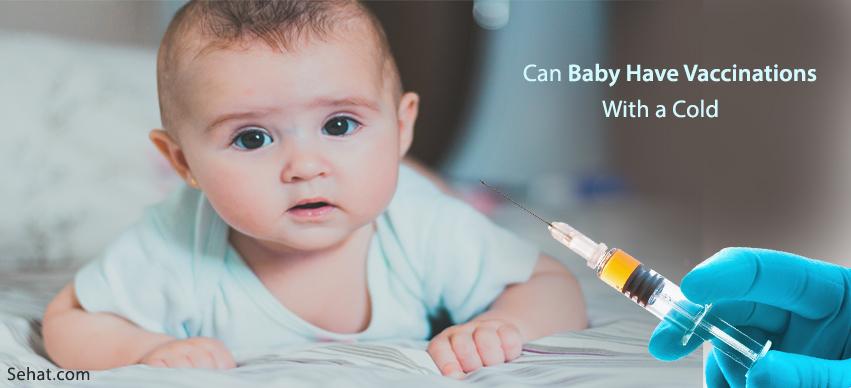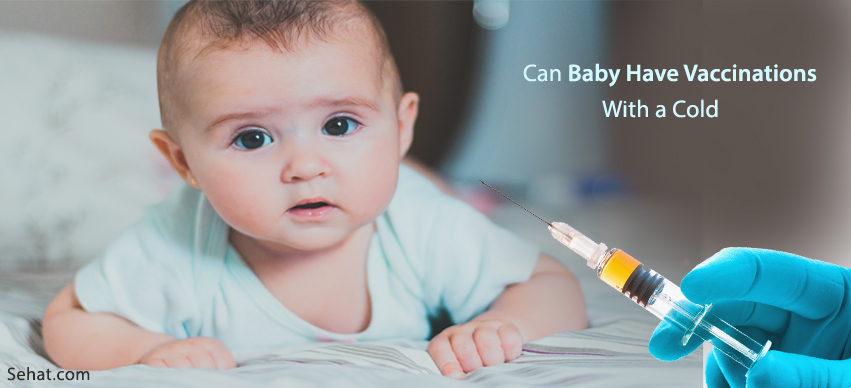
Vaccination refers to the administering of vaccines or antigenic substances in order to boost a person's immunity system to create adaptive immunity to pathogens. Vaccines are mainly administered to the wart or alleviate diseases which are infectious in nature. When an adequate portion of a given population gets vaccinated, it leads to herd immunity results. Many people have this in their mind: can a baby have vaccinations with a cold?
How Does Vaccination Work
Vaccination is also known as immunization which is the process of successfully using a minimal portion of a maimed or killed/weakened virus or bacteria in order to avert infection by the same virus or bacteria.
During vaccination, a person gets injected with a maimed or weakened form or a fragment of a certain disease. This, in turn, goes ahead to trigger a person's body system immunity reaction, this causes it to either manufacture antibodies to that specific disease or produce other reactions that promote immunity.
If a person then gets exposed to the actual ailment causing pathogen eventually, the person's immunity system is made ready to combat the infection. A vaccine is made in a way such that it is to ensure the occurrence of the ailment or minimize its harshness.
Can A Baby Have Vaccinations With A Cold?
Every parent wants that his or her little one should be well immunized to deal with the challenges of life. The most common challenge that affects almost everyone from birth till death is that of illness. Due to this parent are forced to ensure their children are both prepared mentally and physically to deal with these ailments which your children are very venerable to. Indoctrinating a consumption of healthy lifestyle habits can help a lot in keeping diseases away not forgetting vaccination, should also be given a lot of emphases.
- When one gets sick both infants and old people naturally the body responds by producing antibodies which help in the fighting of the germs. The rate at which the body responds to the microbes varies from one person to person. Once the antibodies have been picked up, the body gets well equipped. If the person picks up the same germs again in the near future, the immune system uses these antibodies to fight the infection even before triggering an infection in the body.
- This is what happens when the child is sick which is pretty similar to the aforementioned process. Here, instead of the baby falling sick and the baby developing the antibodies on its own. The antibodies are injected into the body in the form of vaccines. Thus, the child becomes immune to the disease without even falling sick.
- The duration for which these vaccines holds good depends on the nature of the vaccine. On a positive note, some of the vaccinations that are given to a child at this age provide immunizations that last for an entire lifetime.
- From the instance the child is born, the child is supposed to be given a list of vaccinations that are to be administered at appropriate timelines. There is a need to stick to this schedule at all costs.
- During the vaccination administering schedule inconveniencies such as the baby having a cold which causes alternations to the schedule but one has the deal with these practical interruptions. If a little one has a cold or fever there is a need to still stick to the schedule of the vaccinations especially for those that give protection for a lifetime. This is highly recommended especially in the vaccination of Hepatitis, typhoid, polio et cetera.
- Failing to stick to the schedule will obstruct the long-term vaccination schedule for the child and that does more damage than good. Although it makes sense not to overwhelm the child's immune system when it has the ability to fight the disease using the natural immunity system.
- If a baby has the fever for some time it may be highly advisable to postpone it until the child heals. This helps not to overwhelm the child's immunity system. Children can usually get vaccinated if they have a mild common illness like a cold, ear infection, or diarrhea.
- Mild common illnesses do not interfere with the immune response to vaccines and do not increase the risk of adverse events following immunization. Children taking antibiotics can also receive vaccines as antibiotics do not interfere with the immune response to the vaccine.
What Vaccines Does Child Need And When?
All children need to be fully vaccinated so as to be protected from ailments that can cause them severe health issues. The suggested vaccinations for children should be given when they are in the age bracket of 0 to 6 years of age and the recommended vaccinations include:
- Hepatitis B Vaccination
- Vaccination for Rotavirus
- Vaccination for Diphtheria, Tetanus, Pertussis
- Haemophilus influenza type B
- Pneumococcal vaccination
- Poliovirus vaccination
- Vaccination for Influenza
- Measles, mumps, rubella vaccination
- Varicella or chickenpox vaccination
- Vaccination for Hepatitis A
- Vaccination for meningococcal especially for those children born in high-risk groups
The vaccination against these diseases has immensely reduced their risks and minimized them to low levels for decades. It is essential to make sure that every child is vaccinated as scheduled and up to date if they miss a single dosage, there is a need for them to be given the same later. A complete and fully up to date schedule of vaccinations for children should lie between the age s 0 to 18.
Conclusion
Having your child vaccinated is the best gift you can ever give to them. In some very rare case, the vaccine can be avoided or stopped for instance where a child has severe measles or rubella or mumps but baby can have vaccinations with a cold.

